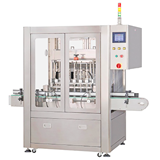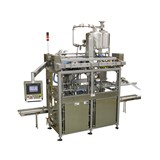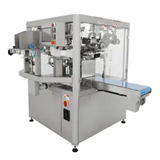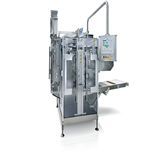However 80 per cent of Australians consider sustainability issues when putting products in their shopping trolleys, according to independent research conducted by Net Balance supported the Australian Food and Grocery Council (AFGC), Woolworths Limited, Amcor and EPA Victoria.
Twenty-seven per cent of respondents said to they would compromise on packaging to protect the environment but only 6 per cent would give-up convenience, AFGC's Green Shopper survey of 1000 Australian shoppers leaving four Woolworths supermarkets in Sydney and Melbourne found.
The survey – released by NetBalance at AFGC's annual industry conference Highlands 2010 on the NSW Central Coast – also found an overwhelming 93 per cent of people agreed that manufacturer and retailer efforts to reduce the environmental impact of products was "very important".
AFGC Chief Executive Kate Carnell said providing and stocking more sustainable food and grocery products was a "whole of supply chain" responsibility in Australia, including farmers, manufacturers, retailers and consumers.
"As AFGC's survey shows, consumers rely upon supermarkets as well as manufacturers to produce and stock products that are sustainable," Ms Carnell said. "Consumers also have a responsibility about what they buy, rather than just looking for cheaper alternatives – there needs to be a balance between good value for money and sustainability."
Thirty-six per cent of Australian shoppers are prepared to pay more for "green" products, the survey found. Around 85 per cent of shoppers are worried about the impact of food and groceries on the environment however 78 per cent won't pay extra for "sustainable" products which they believe are more expensive, according to research commissioned.
Many leading food and grocery companies are already committed to more sustainable production of their products while maintaining the high quality of Australia's safe and nutritious food supply in a global environment of water and carbon constraints.
"Without a sustainable food supply, Australia's ability to produce affordable, clean and nutritious food is at grave risk," said Ms Carnell.
"Over the next 12 months, companies will strive for agreed benchmarking and industry will be working with companies to ensure they measure their carbon and water footprint and set improvement goals," Ms Carnell said.
In AFGC's Green Shopper survey, the most frequently nominated green product categories included:
- Toilet paper
- 23 per cent of respondents knowingly purchased recycled green toilet paper.
- Dishwashing liquid
- 16 per cent of people the purchased of a green dishwashing liquid
- Free range eggs
- 16 per cent chose free range eggs
- Laundry liquid and powder
- 10 per cent bought green laundry powder
- Fresh fruit and vegetables
- 9 per cent said fresh fruit and vegetables was their green purchase.
Other categories for green purchases included tuna/salmon (5 per cent), milk (5 per cent), paper towels (4 per cent), chicken (4 per cent) and light bulbs (4 per cent).
Woolworths Director of Supermarkets Greg Foran said environmental sustainability has become an everyday concern for consumers.
"Woolworths aims to offer a large range of products on its shelves so customers have the opportunity to make a conscious decision to purchase 'green' products. Our aim is to make sustainability mainstream and cost effective for our customers," Mr Foran said.
"As a business, we also continue to reduce the impact of our supply chain, improve the efficiency of new and existing stores and improve the awareness of sustainability among our employees."
Net Balance Associate Director Ross Wyatt, who presented the findings today, said more work needed to be done to "close the widening gap" between "green intent" and green action for consumers.
The Green Shopper survey can be found at www.afgc.org.au.






-160x160-state_article-rel-cat.png)







-160x160-state_article-rel-cat.png)








